"The future belongs to those who believe in the beauty of their dreams." -- Eleanor Roosevelt (from It Seems to Me: Selected Letters of Eleanor Roosevelt, editors Leonard C. Schlup and Donald W. Whisenhunt)
In the days leading up to September 7, 2013, I was on the edge of my seat in anticipation the impending announcement of which city among the finalists of Istanbul, Madrid, and Tokyo would be selected to host the 2020 Summer Olympic Games. I remember feeling intense joy and relief when, on that day, the IOC announced their decision to select Tokyo, Japan as the host city for the 2020 Olympic Games.

Maybe?
Japan National Stadium

The old (1958) stadium was the venue for track and field and opening and closing ceremonies of the 1964 Olympics. I took this photo in early 1978 while Ritsuko and I were attending a soccer match.
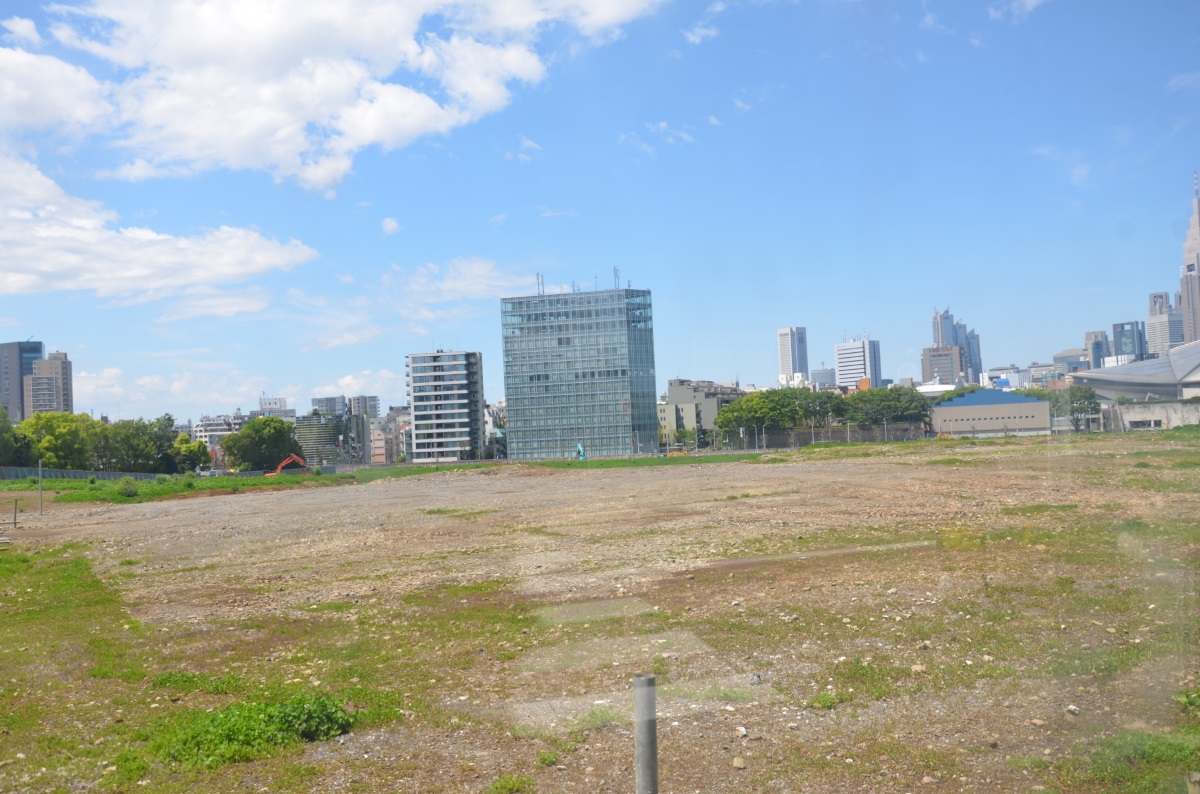
National Stadium site in May 2016 -- original stadium has been demolished and the ground leveled, making way for the construction of the new stadium.
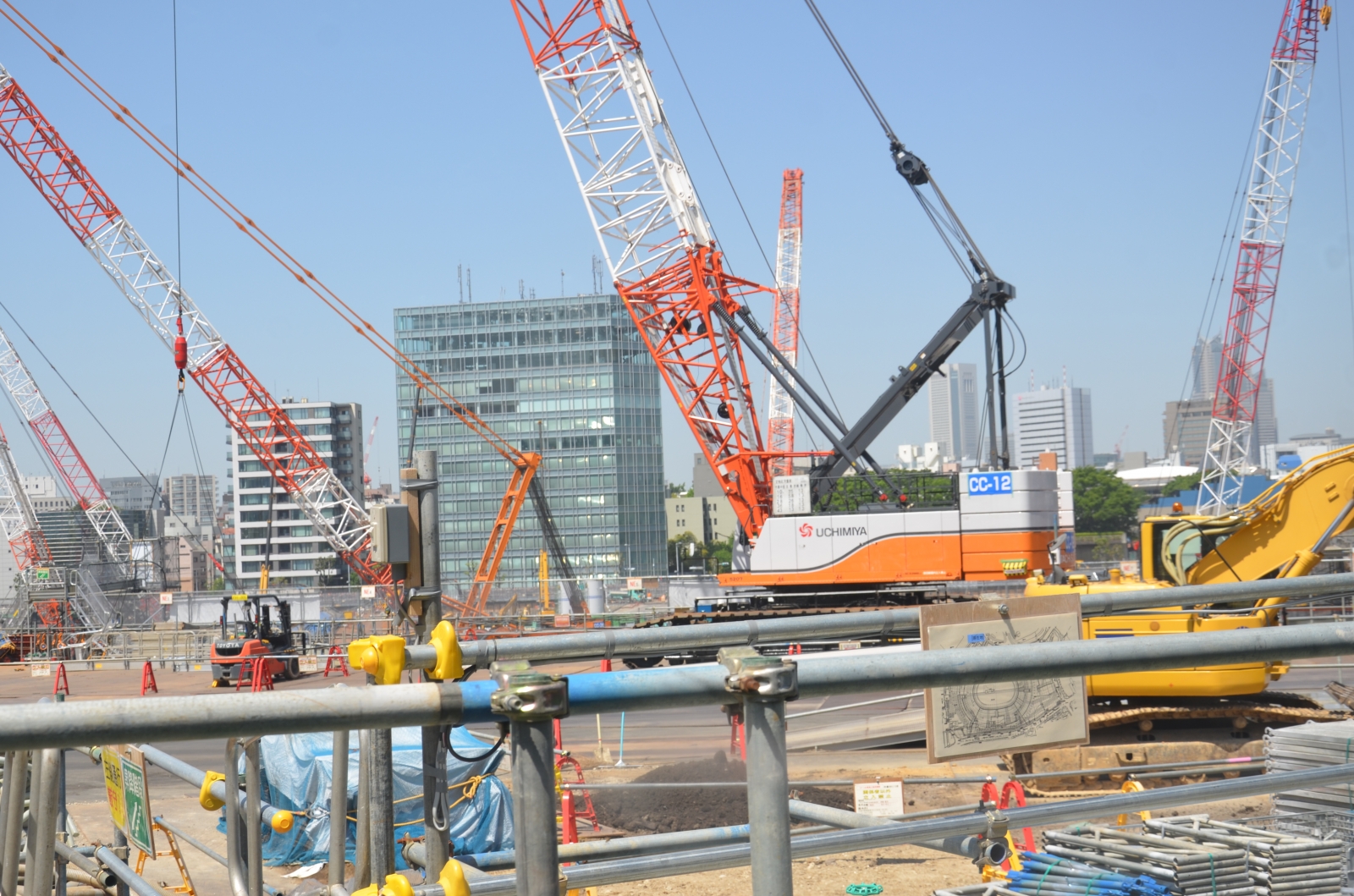
New National Stadium foundation construction May 2017
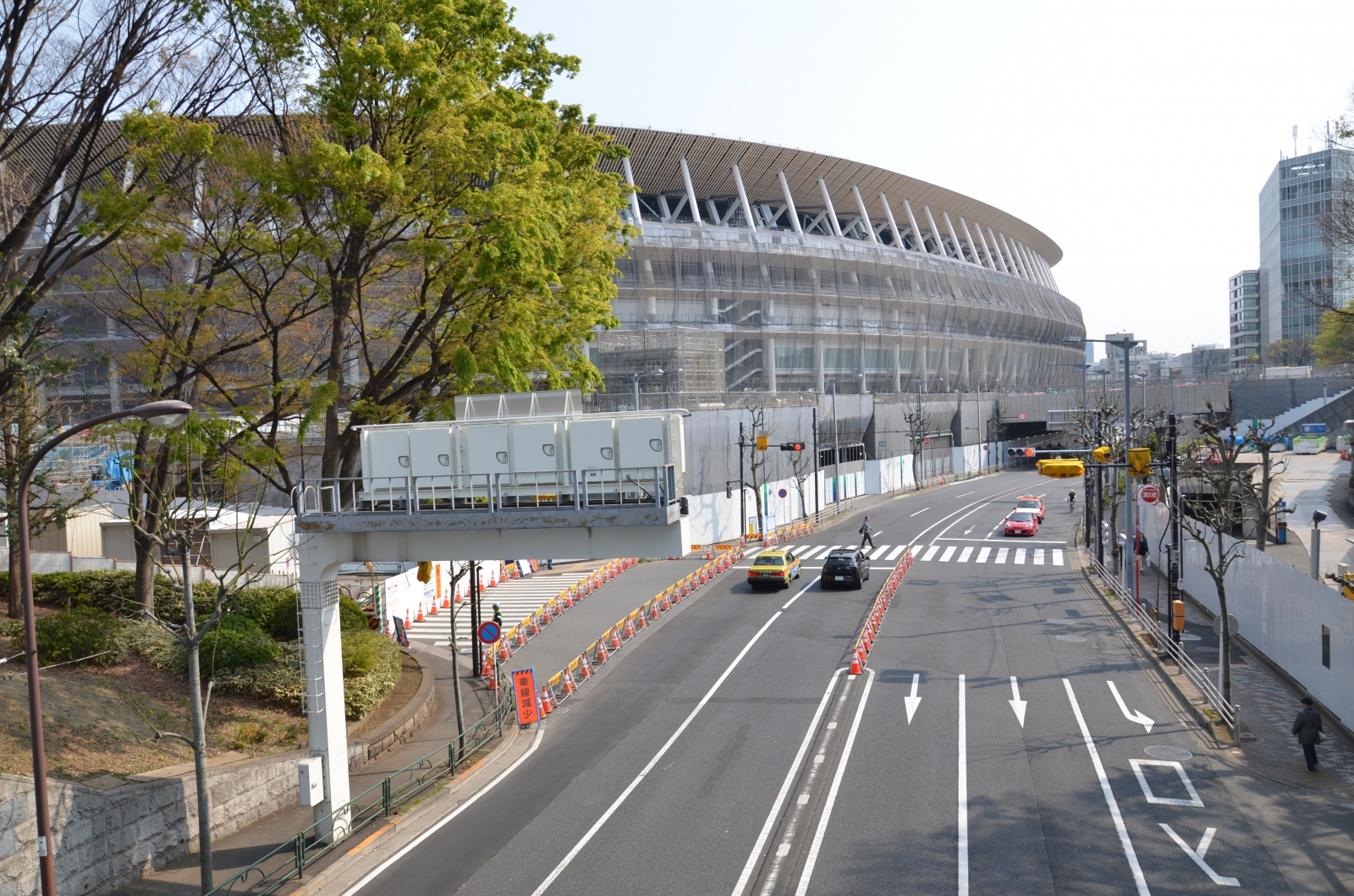
National Stadium near completion in April 2019.
Throughout my life, I have never been an avid fan of collegiate, professional, or really just about any form of organized sports. The exception is that from the time I was about ten years old, every four years the Olympic Games have captured and held my interest. I really don't know why; perhaps it is because of the variety of athletic events held during a short span of time within a specially built set of venues, or maybe it is because of my fascination over the aspect of an international representation of mostly amateur athletes transcending differences of ethnicity, religion, and nationality in a celebration of the true spirit of athletic competition. Whatever the reason or reasons, I really enjoy watching the events of the Olympic Games. Although Ritsuko and I both love watching the games, neither of us have ever attended an Olympics. Not being a cold weather person (yeah, I know -- we live in Iowa), I have never had a burning (no pun intended) desire to attend a Winter Olympics, preferring to watch on the television in the comfort of home, but there have been times when I would have really liked to have been at the Summer Games.
However, for one reason or another, in prior years the stars just haven't aligned in our favor to put together a plan to actually be there, but as soon as the IOC announcement was made, Ritsuko and I decided that we would put forth our very best effort to attend the 2020 Summer Olympics. After all, Tokyo is a city that we know and love, and in my opinion, it just made sense for Tokyo to be selected as the host city.
Yoyogi National Gymnasium - 1964 Tokyo Olympics
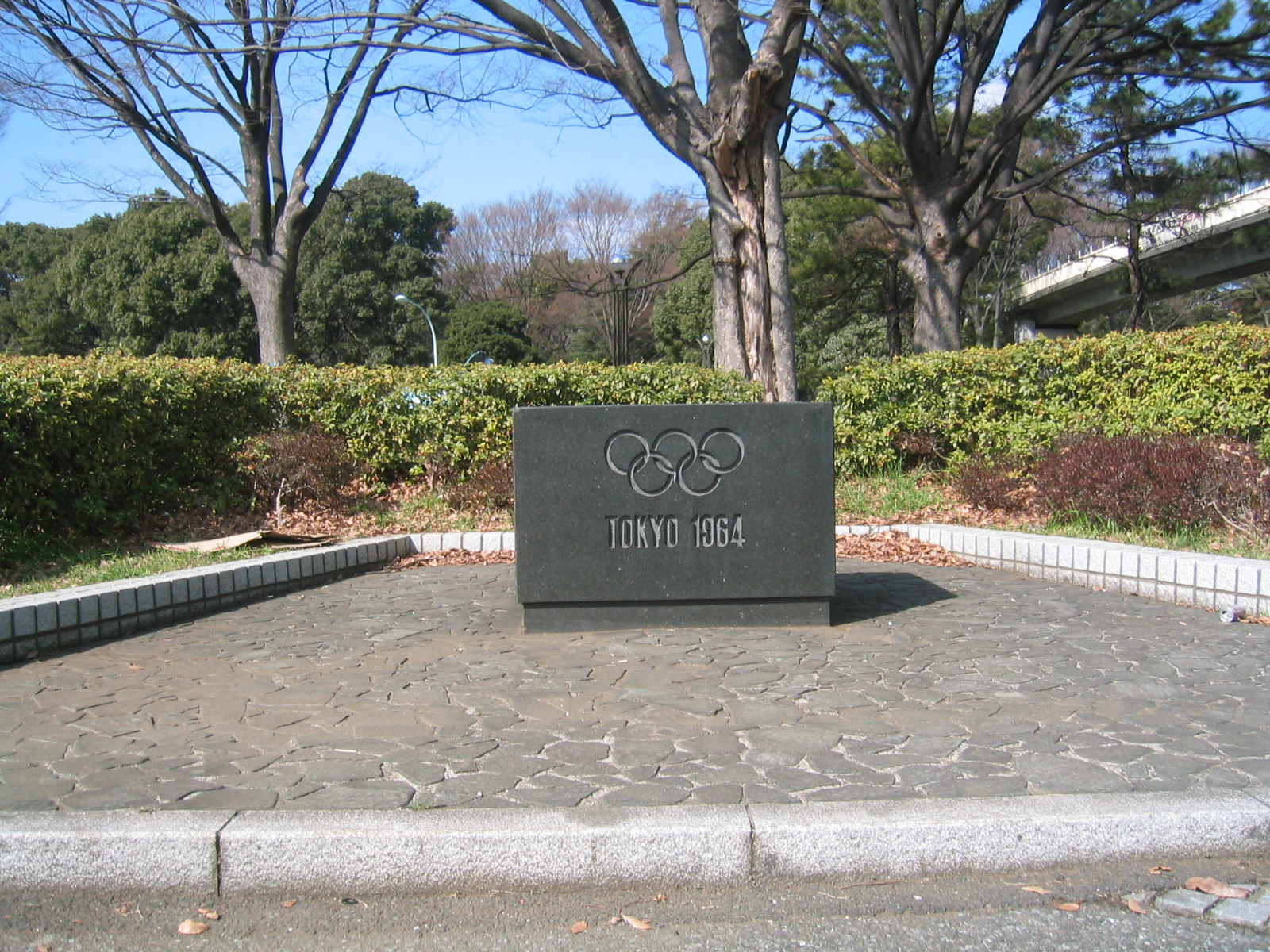
1964 Olympics sign at entrance to the Yoyogi National Gymnasium (photo taken Feb 2005)
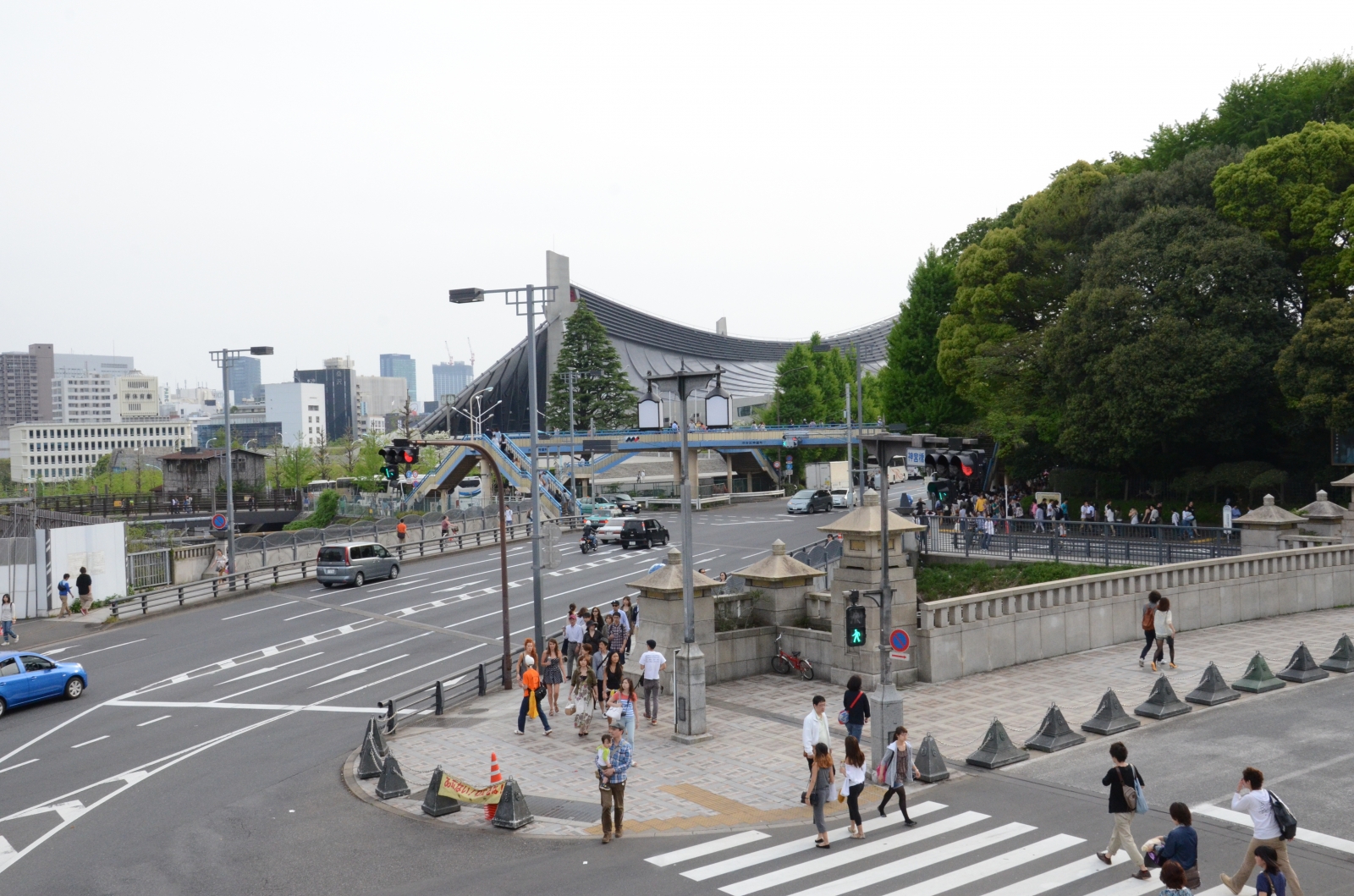
Yoyogi National Gymnasium with entrance to Meiji Shrine and Yoyogi Park in the foreground, April 2012

Photo taken from Yoyogi Park April 2019-- you can see through the trees that the Yoyogi National Gymnasium is covered in scaffolding while undergoing a facelift in preparation for the 2020 Olympics.
Although Tokyo has a population of approximately 37 million people and is one of the most densely populated cities on the planet, getting from point A to point B is amazingly easy. The extensive network of safe and reliable commuter trains and subways that make up their public transportation system provide a relatively inexpensive and stress free means for a person to traverse the city without having to rely upon a car or a tour bus. Additionally, there is a multitude of hotels all over the metro area, ranging from inexpensive hostels and ultra spartan capsule hotels to luxurious five star accommodations. Food -- yes, whether you choose a konbini bento, street food, a simple bowl of ramen or soba, or gourmet haute cuisine, a seemingly infinite variety of food is available almost everywhere. And while there will be many event venues built especially for the Olympics, many existing sports and entertainment venues can be used; venues such as The Ryogoku Kokugikan, Saitama Super Arena, and the Yokohama Stadium. Also, remember the 1964 Tokyo Olympics? Rather than falling into derelict disrepair as has happened in many other countries, venues and attractions that were built for the 1964 Games have been maintained, improved, and used throughout the decades by the people of Tokyo.
Japan used the opportunity of hosting the 1964 Olympics to showcase their capital city to the world, exhibiting their remarkable recovery in only nineteen years after the end of World War II. In addition to attending events held in venues such as the National Stadium, which had been built in 1958, and other structures that were built especially for use in the Olympics, such as the Yoyogi National Gymnasium and Nippon Budokan, visitors could be transported to and from Haneda Airport on the newly constructed Tokyo Monorail, and they could travel westward from Tokyo to Osaka on what was at the time the fastest train in the world, the radically new high speed, Tokaido Shinkansen (colloquially referred to as the "Bullet Train"), the first of many Shinkansen lines that would subsequently be built throughout Japan.
In order to transform the war torn capital city into a showplace for the world to see in 1964, it is estimated that the government of Japan spent the equivalent of the entire national budget for that year solely in preparation for the 1964 Summer Olympic Games.
Martial Arts Venues
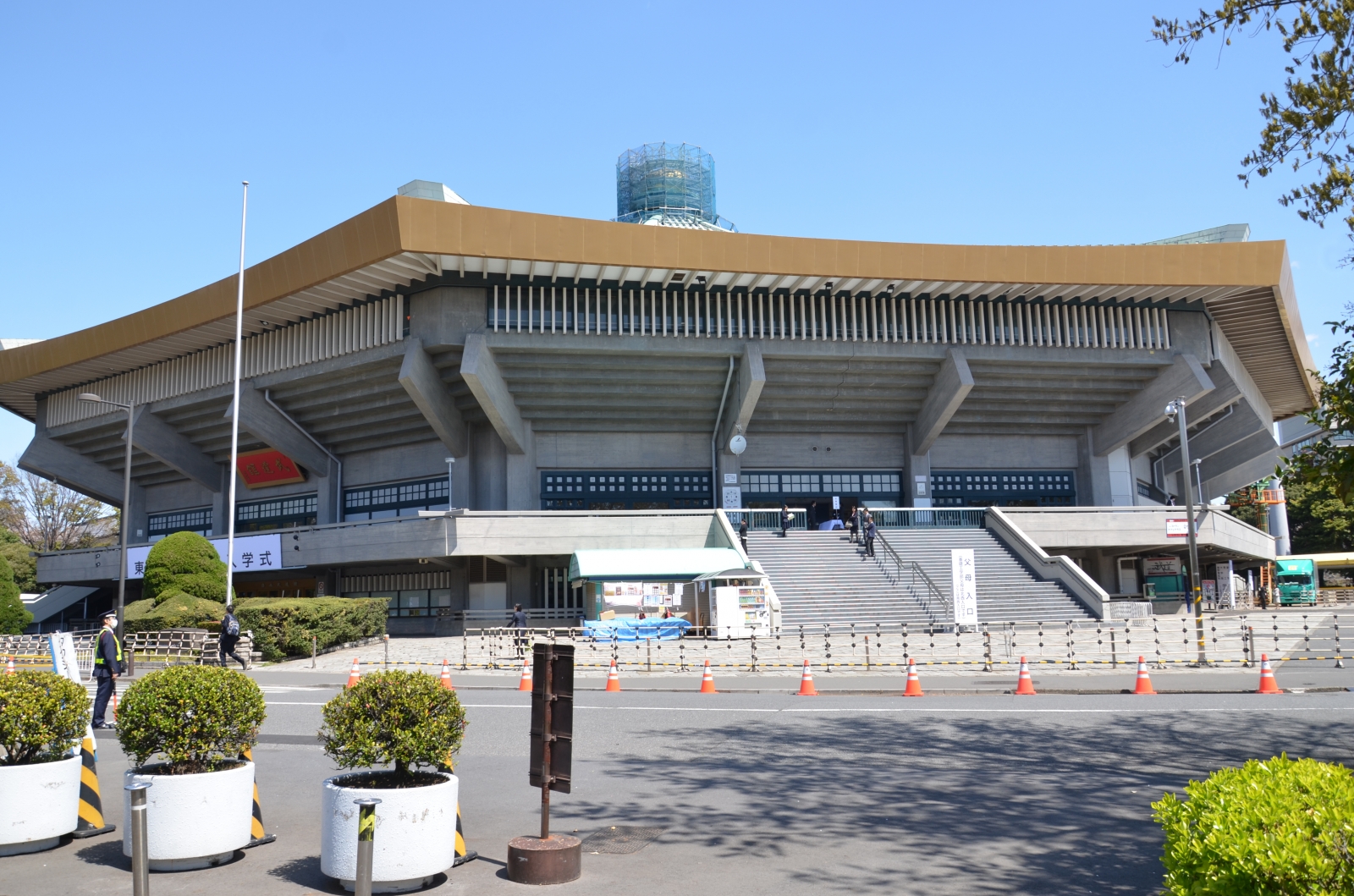
Nippon Budokan, April 2019; 2020 Olympics venue for Judo and Karate

Ryogoku Kokugikan, February 1991; 2020 Olympics venue for Boxing
Ritsuko and I have visited Japan several times since the IOC announcement awarding the 2020 Games to Tokyo. On each of those vists, we have watched the progress in preparation in the city of Tokyo and in surrounding areas. The old National Stadium was razed to make way for a new National Stadium, the construction of which was completed in 2019. New venues such as the Ariake Arena, built for volleyball events, and the Ariake Coliseum at Ariake Tennis no Mori are stunning examples of new structures built for the 2020 Games. An additional treat for visitors to venues in the Odaiba area such as the Ariake Arena and Coliseum is being able to access them on the new Yurikamome Line, a fully automated train that connects the Odaiba island to the mainland. Having been completed in 2014, the Yurikamome was not specifically built for the Olympics, but it is a example of Tokyo's commitment to continually enhancing their transportation infrastructure.
The city of Tokyo has also updated older subway and train stations throughout the city. A prime example is on the Ginza Line, the oldest of the Metro subway lines, most of the stations from Shibuya to Asakusa have been updated. A beautiful new station, Takanawa Gateway, was built on the busy Japan Railways Yamanote Line. This is the first new station built on the Yamanote since 1971, and provides travelers with easy access to Haneda Airport.
With each successive visit to Tokyo, we saw more evidence of preparation for the 2020 Olympics. New construction was evident wherever we went; from hotels to restaurants and updated shopping areas, it was evident that government and private enterprise were heavily engaged in the preparation, and it was also evident that all preparation efforts were on schedule to be complete by July 2020.
Our excitement was building as we watched the preparations and progress. Shortly after returning from our 2019 trip, I signed up for ticket availability alerts on the CoSport website. CoSport is the authorized reseller for 2020 Olympics tickets in the United States. I then began monitoring their website for event ticket availability. A few months later, we booked our airfare on Japan Airlines. We decided to arrive in Tokyo the day before the opening, and stay until 3 days before closing. As 2019 came to a close, we had not only booked airfare, but also had purchased a variety of event tickets, and we had prepaid our hotel bookings for the majority of our stay. Needless to say, we were really pumped in anticipation of our trip.
At the dawn of the year 2020, the World Health Organization began reporting about a cluster of pneumonia cases in Wuhan, China. In subsequent days, news stories regarding the outbreak quickly developed with the revelation that a new and highly contagious strain responsible for the pneumonia like illnesses was being transmitted from person to person, and was spreading rapidly. By early March, due to the severity and rapid spread of the disease, the WHO had formally recognized COVID-19 as being a world wide pandemic.
As the COVID-19 pandemic was officially declared, the IOC and the Tokyo Organizing Committee held the position not to officially cancel or reschedule, and announced that a decision would be made in May 2020. Ever since January, when news stories began to emerge about the virus, I had a sinking feeling that there would be no Olympics in 2020. As the disease spread, fearing an even greater catastrophe if they tried to proceed, I found myself hoping that the officials in charge wouldn't attempt to hold the Games on schedule. Then on March 24, the decision came early, and the 2020 Olympics were officially postponed until July 23, 2021. I remember feeling disappointment in that the Games wouldn't be held; disappointment for the athletes who have trained for months, years, and in the case of some, for their entire lives; disappointment that after massive expenditures in preparing for the event, the economic impact of canceling would be a terrible blow to the Tokyo economy. But, I also felt great relief that in consideration for the threat to public safety, for once common sense had prevailed.
For Ritsuko and me our disappointment was simply that the chance to fulfill a dream had become ever more elusive, but put into proper perspective the pain of our disappointment was mitigated by the fact we have had the good fortune of realizing so many other dreams in our lives, and that the personal economic impact of the Olympics being rescheduled was minimal. The airlines and hotels were very cooperative, thus we were able to get a full refund on our airfare and hotel reservations. We had an option last summer of requesting a refund for our event tickets. CoSport was offering a refund on the basic ticket cost, but we would have lost the service charge. Instead, we decided at that time to keep the event ticket reservations in the hope of the Olympics proceeding in 2021.
For the rest of 2020 and into 2021, the pandemic rages on.
As is stands now, at the end of January 2021, the IOC and the Tokyo Organizing Committee maintain that despite the pandemic, the Olympic games will begin on July 23 of this year. Some changes are being made in reducing the audience size of the events, implementing proper social distancing, etc. But, the pandemic rages on. Vaccines are now developed and approved, but it will take months for enough people around the world to be vaccinated in order to be able to safely hold such an event. And now there are several new variants of the virus, challenging the efficacy of the vaccines in distribution. The pandemic rages on, and I just don't think that it will be sufficiently under control five and a half months from now for the Olympics to be held without putting the lives of millions of people in jeopardy.
We have, for years, dreamed of attending a Summer Olympics in Tokyo, but I just don't think that it is going to happen. Maybe there will be a scaled down socially distanced version, and if that can be done safely and becomes a reality, then I am happy for the athletes who will be able to compete and for those who have put so much time and money into making the Olympic Games happen, but for us, that type of a scaled down event will be something that we would rather just watch on television at home. So at this time we are not planning to attend.
Maybe the 2020 Olympics will never be more than a beautiful dream. As we get closer to the July 23 2021 start date, it is becoming ever more likely that the Games will be postponed again or just canceled altogether. If that happens, I can only hope that those who worked so diligently and relentlessly to turn the beauty of their dream into a reality will be able to carry that dream on perhaps a different path toward a bright future of happiness and prosperity.
UPDATE 3/20/2021: The Tokyo Organizing Committee and IOC today officially confirmed that as requested by the Government of Japan, international spectators will be barred from attending the Olympic Games and the Paralympics.

